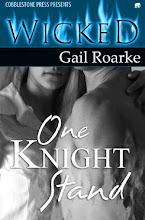My lovely and talented spouse and I spent four days at the coast this past weekend. We drove down on Friday morning and enjoyed lunch at Kyllo's, a great seafood restaurant there. We enjoyed the beach for a while, then checked into the inn where the workshop was to be held. The workshop was all day Saturday and Sunday, with extra bonus activities on Saturday evening. While I was workshopping, my lovely and talented spouse was busy enjoying the coast. We ate lots of good food all weekend and had a wonderful time. We even stayed over Sunday night to spend the next morning on the beach and eat lunch (Kyllo's again) before heading home.
So. The workshop. It was a two day introduction to life as a professional fiction writer, aka The Kris & Dean Show, taught by Dean Wesley Smith and Kristine Katherine Rusch. With nearly a couple hundred published novels and hundreds of short stories between them, to say nothing of experience as editors and publishers at one time or another, they had a lot to convey. There were nine students there, including myself.
First thing they brought up was Heinlein's Rules for Writers:
1. You must write.
2. You must finish what you write.
3. You must not rewrite except to editorial demand. (Harlan Ellison's addition: and only if you agree.)
4. You must mail your story to an editor who will pay you for it.
5. You must keep your story in the mail until it sells.
That's it. That's the whole secret of being a successful fiction writer. Simple in theory, but hard to do in practice. Fear will stop you in many, many ways--Heinlein's rules are largely designed (intentionally or otherwise) to circumvent those fears. If you follow the rules faithfully, you'll do what you need to do even if you fear rejection or failure. Afraid you're no good? Write anyhow. Afraid your story sucks? Finish it anyhow. Afraid it needs rewriting--an excellent way to avoid sending it out? Mail it. Afraid a rejection means you're a failure, an awful person? Keep sending it out. Just because one editor (or a hundred) rejected it, doesn't mean the next one will.
Kris Rusch mentioned that she'd recently just sold a story that's been circulating for TEN YEARS. Sometimes you let a story rest--when you've tried all the markets you can find--but when you discover a new potential market, out it goes again. Never say die.
They spent time busting some of the myths that have grown up around writing. Myths like "Good writing takes a long time.*" Lots of classics of modern literature were written very quickly. Many if not most successful fiction writers write quickly. Writing quickly helps keep your internal editor out of your way.
Myths like "You must rewrite to write well." Again, many successful writers do no substantive rewriting*. That is, they write a first draft, spellcheck it, have a trust first reader look it over, make any minor changes the reader suggests (assuming they agree) and then sent it out. Rewriting (actually changing character actions, plot points, and so forth) generally doesn't help-- it does, however, allow you to sand off the sharp edges and rawness that gives your work your distinctive voice.
Myths like "You need an agent to sell your story." No, you need an agent to negotiate a contract once you have an offer on the table. And to play attack dog for you when you need one to shake loose overdue checks, maybe. But that's it. You don't need an agent to submit your story to a publisher, no matter what the publishers tell you. And you never, ever, ever submit stories to an agent, or listen to any agent who wants to tell you how to improve your manuscript. Agents don't buy stories. Editors buy stories. See Heinlein's Rule #4 again. If the editor is paying for the privilege, HE gets to suggest changes. Nobody else.
Myths like "Nobody but a handful of big name writers can make any real money writing fiction." That's just not so. They went into a lot of detail about this one, explaining just how you can make a very good living writing fiction. I may go into the details in another post. But suffice it to say for now, that making a living as a writer of fiction is not only very possible, hundreds of thousands of people do it very comfortably. It only requires that you write a lot (so writing fast is good), and that you keep your work circulating.
They also had lots of practical advice on writing--physically writing, I mean. You can't spend hours every day sitting at a desk wiggling your fingers over a keyboard without serious physical issues if you don't a) make sure your desk, chair and computer are aligned properly, and b) get up and move around regularly, including lots of exercise. Writing is a sedentary job, but you have to take care of your body all the same.
They also gave us advice on other issues--tracking your manuscript submissions, making sure your stories and documents are safely and redundantly backed up in case the worst happens (Dean's house burned down many years ago and he lost a lot of his early manuscripts in that fire), and other practical issues.
I'd heard much of this before, of course. I read both of their blogs. But a good part of the material was also new to me. And it was all very inspiring. I came home with a renewed desire to write, write, write--and get my stories out in the mail (or e-mail, as the case may be).
My goal for at least the next few months is to write and mail two short stories (or one novelette or novella) a week. The more stories I can get in circulation, the better.
*A caveat: there is no one Right Way to write. Some writers DO write slowly, and some do rewrite extensively. If that works for you, go for it. But at least as often as not, and maybe more often than not, that's not the case.
Groundhog Day…And I Don't Mean The Movie
-
NEWS FLASH—MONDAY, FEBRUARY 2, PUNXSUTAWNEY, PENNSYLVANIA: PHIL WILL
EMERGE FROM HIS BURROW TO PREDICT WHEN WINTER WILL END. NO SHADOW…NO MORE
WINTER. ...
4 days ago









No comments:
Post a Comment